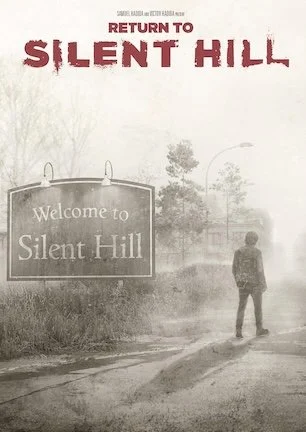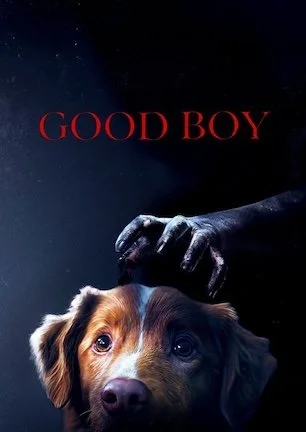Studio: Anderson Digital
Director: Joe Pearson
Writer: David Abramovitz
Producer: David Abramovitz, Mike Bloemendal, Joe Pearson, Leon Tan
Stars: Peter Wingfield, Elizabeth Gracen, Jim Byrnes, Tony Eusoff, Beau Billingslea, Rob Middleton, Adam Baldwin, Mark Sheppard, Matt Letscher, Adrian Paul
Review Score:
Summary:
On the eve of WWI in a timeline altered by the Martian invasion of 1899, an international military squadron prepares to fight a new wave of alien attacks with steam-powered battle machines.
Review:
In our world, the assassination of Archduke Franz Ferdinand in 1914 lit the tinder of World War One. The event would have done the same on the Earth of “War of the Worlds: Goliath” too, if its citizens were not already focused on repelling a second Martian invasion of the planet.
15 years after the tripod assault detailed in H.G. Wells’ venerable classic, Earth awaits the Martians’ presumably inevitable return with an international military force of soldiers, pilots, and steam-powered battle mechs reverse engineered from alien technology by Nikola Tesla himself. Secretary of War Teddy Roosevelt and Russian general Sergei Kushinirov command these Allied Resistance Earth Squadrons, otherwise known as A.R.E.S. Isolated conflicts between countries now seem trivial in light of the larger threat looming and it is up to Captain Eric Wells to lead an elite unit of multicultural men and women in fierce conflict against the alien oppressors.
“War of the Worlds: Goliath” has enough ideas and characters to populate an entire animated television series, and perhaps it was once intended as such. An extended serialized format would likely have worked more favorably for what “Goliath” ultimately delivers, because everything the movie tries to accomplish does not quite fit into a feature film style.
Despite rich source material and a steampunk-influenced imagination at its core, “Goliath” cuts a lot of corners that cause it to come across as a rushed project without a sufficiently developed universe. It starts with the heroes.
Goliath’s squad leader Eric Wells is curiously the most vanilla of the bunch. In making him such a milquetoast Everyman, Eric is bland and not at all cut from leadership-quality cloth. Upon his first encounter with returned Martian forces, Eric freezes in his tracks as soldiers are disintegrated by death rays while vainly awaiting orders he is too panicked to give. The film is trying to throw out a callback to a moment from his traumatic youth, but douses him in ineffectual cowardice by doing so.
Subplots come and go too quickly to warrant any meaningful investment of sustained attention. One of the military commanders loses his son in a clichéd moment when clasping hands lose their grip over a fiery chasm. Until the falling man said, “I love you father,” there was no indication that the empty-handed man even had a son, causing intended emotion to fall flat.
Of the rainbow coalition populating Eric’s battle squad, only the brawny redhead from Ireland has a B storyline, which involves IRA cloak and dagger tactics to steal munitions from ARES for Ireland’s rebellion against the British. The rest of the characters are sadly interchangeable, and that includes the lone woman acting as Eric’s uninteresting love interest. “War of the Worlds: Goliath” is clearly in need of a greater playground to expand its threads. The confines of 85 minutes do not afford the right amount of space to open up its ideas and let loose.
And “Goliath” does have ideas. The Gotham City in daylight deco fused with turn of the century industrial design makes for a unique vision of New York featuring a Statue of Liberty hoisting a sword instead of a torch. The Goliath itself resembles a cross between Metal Gear and a tank atop a three-legged AT-ST. “War of the Worlds: Goliath” is in possession of some cool concepts, although it glimpses them far too briefly to leave the lasting impression they should.
“Goliath” is clearly hamstrung by an animation quality bar reminiscent of what was commonplace for a Fox Kids series in the 1990’s. Alien tripods and some of the machinery are rendered in 3D while the remainder is traditional 2D and cheap tricks like blurred background plates and reused cels. It is good enough for broadcast television quality, but not quite up to theatrical feature snuff.
That limited scope in animation resources really hurts when the story is about a planetary invasion. Presumably to keep costs low and to simplify animators’ workload, some scenes are conspicuously underdeveloped, such as those where alien tripods are seen only three at a time and generally no more than half a dozen battle units ever appear onscreen at once.
“Goliath” creates a vibrant vision of a reimagined New York, but then spends the middle act in a barren New Mexico canyon. That would not be as big of an issue except that the story describes massive attacks taking place in Montreal and New Orleans, and the viewer cannot help but want to see what that would look like instead of another laser blast firing into a rock wall. Feeling the magnitude of a large-scale alien invasion is next to impossible when the visuals are restricted to tiny battles set against monotone backgrounds.
Some of the editing and animation, particularly several lackluster explosions, are rendered roughshod. And the voice acting is uninspired to say the least, as if everyone’s lines were recorded in one take upon a first read of the script. Yet with all of that said, it is also difficult to not appreciate what director Joe Pearson and his crew were going for, even if they were unable to fully realize what was no doubt a grander vision.
“War of the Worlds: Goliath” cannot compete with a Dreamworks or Disney production, but it is still loaded with ambition and entertainment. The fiction mix of WWI history with H.G. Wells science-fiction is cleverly blended with real-life personalities like Tesla and the infamous Red Baron. And after seeing former president Teddy Roosevelt with buffed-up Popeye arms firing a laser cannon at mechanical Martian invaders, it becomes apparent that “War of the Worlds: Goliath” has enough fun ideas at its heart to overlook those concerns about its shortcomings.
Review Score: 65






While the 110-minute runtime could use a trim to maintain more energy, “Redux Redux” is an easy recommend for anyone who enjoys low-key sci-fi.